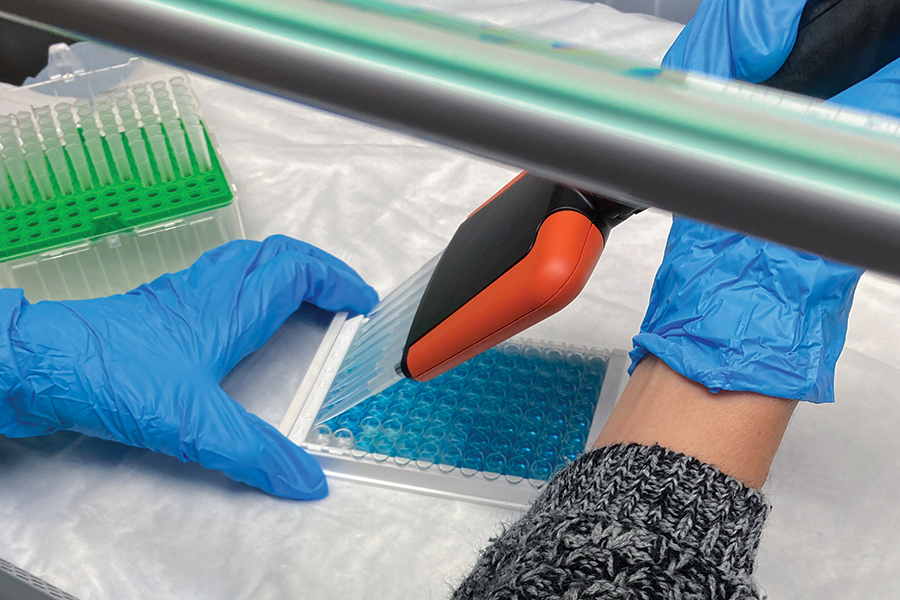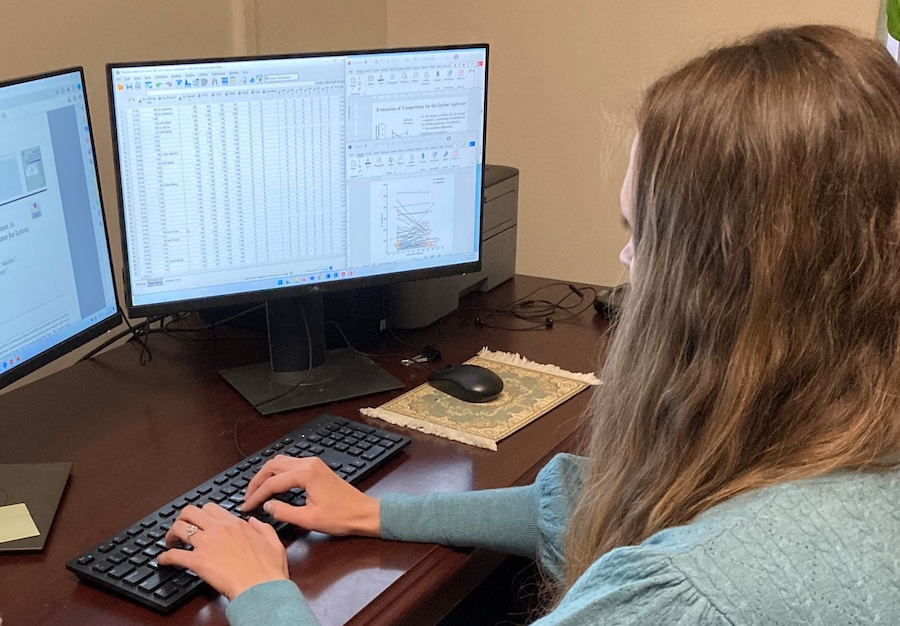Situational Awareness
Two-time psychology alumna Anastasia Makhanova advances interpersonal relationship research through FSU-forged connections

As Anastasia Makhanova stood in front of her mentors and peers awaiting recognition, she was both nervous and excited. This was not her doctoral hooding ceremony — that was still a full year away. She had just concluded her presentation at Florida State University’s Psychology Graduate Research Day, sharing her research into the genetic underpinnings of maintaining romantic relationships. The outcome: She won first place.
“That was a big moment,” said Makhanova, a social psychologist who earned a master’s degree and doctorate from FSU in 2016 and 2019, respectively. “I was excited to showcase our collaborative and interdisciplinary work, and winning in 2018 showed the department recognized its importance. I spent five years training in multiple labs and conducting in-depth studies, so the recognition meant a lot to me.”
Now, as an assistant professor of psychology at the University of Arkansas, Makhanova focuses on how individuals perceive others in their social environments, investigating different situations and interactions among people from varied socioeconomic backgrounds and professions. She has also continued to rely on connections she formed as a graduate student with researchers both in and outside of the Department of Psychology, many of whom are now collaborators.
“She is a true FSU success story and a rising star in the field,” said psychology professor Jon Maner, one of Makhanova’s primary mentors during her time at FSU and a co-investigator on her latest grant. “I have been fortunate to watch her transition from a budding graduate student, to a thriving assistant professor, to a highly successful scholar with a long and bright career ahead of her.”
Last fall, Makhanova was awarded a $3,392,987 National Institutes of Health grant to determine if patients may be subject to bias in receiving treatment if health care providers themselves are under the weather or fearful of becoming sick. Over five years, Makhanova will lead a team of interdisciplinary researchers from UA, FSU, the University of Texas at San Antonio, the University of Arkansas for Medical Sciences, the University of New Mexico, and Loma Linda University in evaluating if adverse situational conditions cause subtle differences in physician behavior, potentially impacting patient outcomes and treatment bias.

Three of her co-Is, including Maner, professor of psychology Ashby Plant, and assistant professor of anthropology Eric Shattuck, are from FSU.
“My research highlights the importance of situational context,” Makhanova said. “Our research on physician bias demonstrates that all doctors — not just some — are more vulnerable to biased decision-making in certain contexts such as feeling sick, trying to avoid becoming sick, and feeling stress and burnout.”
Alongside professor of psychology Lisa Eckel and senior research associate Larissa Nikonova, Makhanova learned unique skills at FSU that allow her to measure these specific contexts via hormone assays, or lab tests that quantify specific hormone levels. Her previous National Science Foundation-funded research and this new NIH-funded project involve using these skills to examine links between prejudice and immune system markers of acute inflammation, such as pro-inflammatory cytokines — proteins that communicate threats to the immune system — like interleukin-6.

“In graduate school, I was an independent scholar with training wheels,” Makhanova said. “Not many researchers can say they do their own hormone assays, and not many programs allow grad students to get that training. FSU showed me how to get from the samples to the numbers, which gave me a better understanding of the research process then and now allows me to offer better training opportunities to my students.”
In addition to the NIH-funded work, Makhanova’s research interests also include understanding how different biological processes can affect the way people navigate their interpersonal social networks. She originally began this work at FSU alongside professor of psychology Jim McNulty, and together they studied how people perceive their romantic partners during conflict, seeking answers to why some couples endure conflict and periods of transition better than other couples. She recently completed data collection for a new line of research that will examine how biological and hormonal processes influence romantic partners’ perceptions of each other when they become parents.
“Although I graduated almost six years ago, my continued communication and collaboration with former mentors is a testament to the benefit of my training at FSU,” Makhanova said. “Now as an independent scholar, I still feel like we work really well together, and I want them on my team.”
Kendall Cooper is an FSU alumna who earned a bachelor’s degree in media and communication studies with a double major in editing, writing and media in 2023. She is currently pursuing a master’s degree in media and communication studies with a certification in project management and is set to graduate in May 2025.
